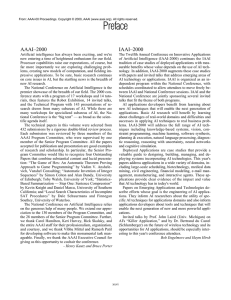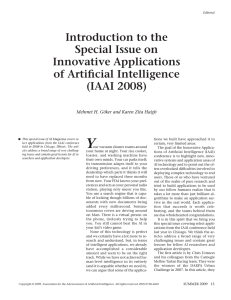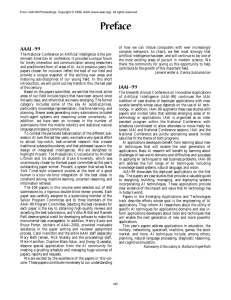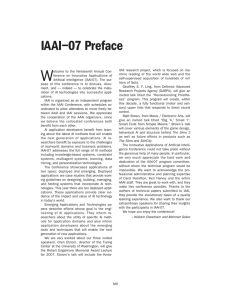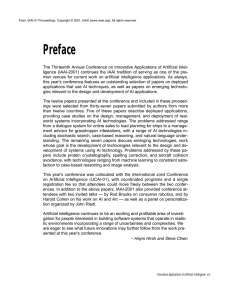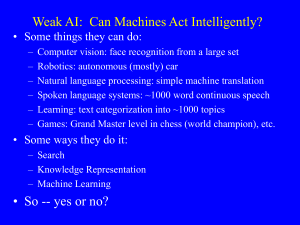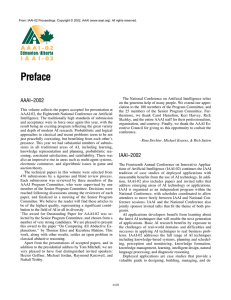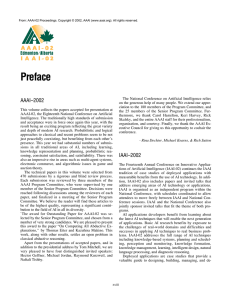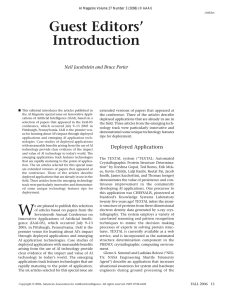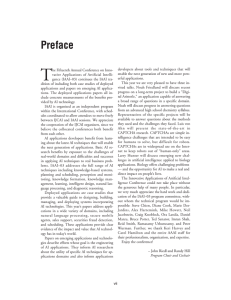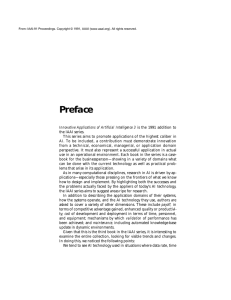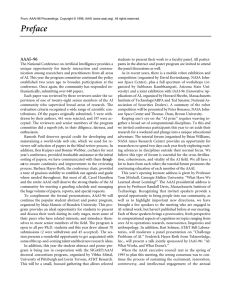W IAAI Conference Preface
advertisement
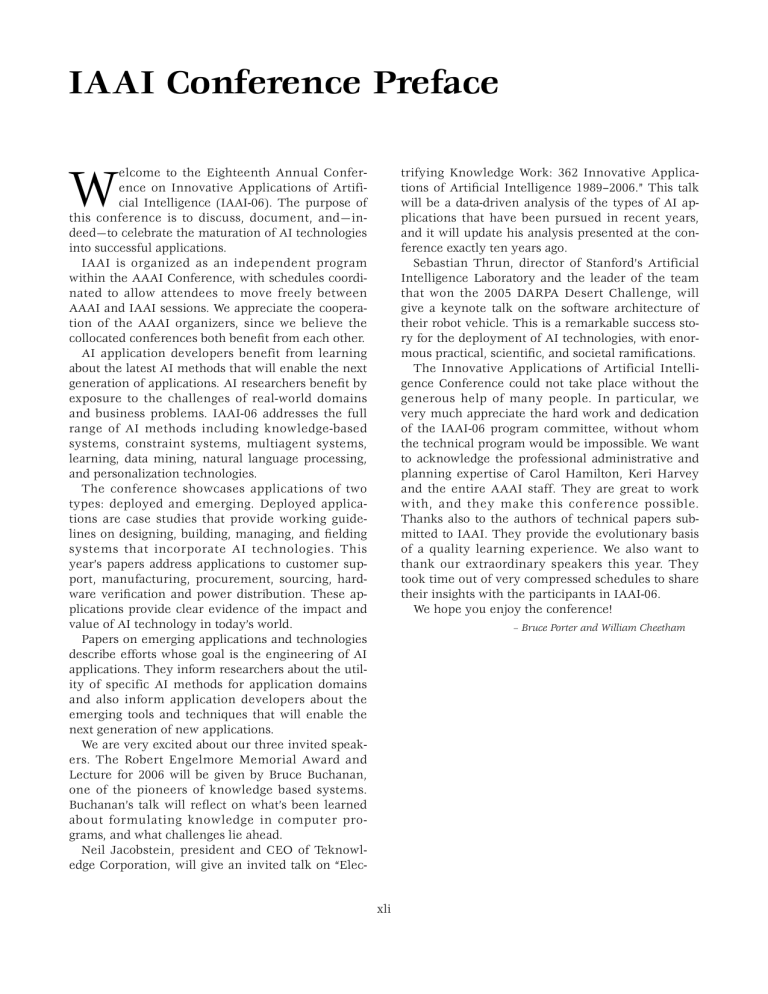
IAAI Conference Preface elcome to the Eighteenth Annual Conference on Innovative Applications of Artificial Intelligence (IAAI-06). The purpose of this conference is to discuss, document, and—indeed—to celebrate the maturation of AI technologies into successful applications. IAAI is organized as an independent program within the AAAI Conference, with schedules coordinated to allow attendees to move freely between AAAI and IAAI sessions. We appreciate the cooperation of the AAAI organizers, since we believe the collocated conferences both benefit from each other. AI application developers benefit from learning about the latest AI methods that will enable the next generation of applications. AI researchers benefit by exposure to the challenges of real-world domains and business problems. IAAI-06 addresses the full range of AI methods including knowledge-based systems, constraint systems, multiagent systems, learning, data mining, natural language processing, and personalization technologies. The conference showcases applications of two types: deployed and emerging. Deployed applications are case studies that provide working guidelines on designing, building, managing, and fielding systems that incorporate AI technologies. This year’s papers address applications to customer support, manufacturing, procurement, sourcing, hardware verification and power distribution. These applications provide clear evidence of the impact and value of AI technology in today’s world. Papers on emerging applications and technologies describe efforts whose goal is the engineering of AI applications. They inform researchers about the utility of specific AI methods for application domains and also inform application developers about the emerging tools and techniques that will enable the next generation of new applications. We are very excited about our three invited speakers. The Robert Engelmore Memorial Award and Lecture for 2006 will be given by Bruce Buchanan, one of the pioneers of knowledge based systems. Buchanan’s talk will reflect on what’s been learned about formulating knowledge in computer programs, and what challenges lie ahead. Neil Jacobstein, president and CEO of Teknowledge Corporation, will give an invited talk on “Elec- trifying Knowledge Work: 362 Innovative Applications of Artificial Intelligence 1989–2006.” This talk will be a data-driven analysis of the types of AI applications that have been pursued in recent years, and it will update his analysis presented at the conference exactly ten years ago. Sebastian Thrun, director of Stanford’s Artificial Intelligence Laboratory and the leader of the team that won the 2005 DARPA Desert Challenge, will give a keynote talk on the software architecture of their robot vehicle. This is a remarkable success story for the deployment of AI technologies, with enormous practical, scientific, and societal ramifications. The Innovative Applications of Artificial Intelligence Conference could not take place without the generous help of many people. In particular, we very much appreciate the hard work and dedication of the IAAI-06 program committee, without whom the technical program would be impossible. We want to acknowledge the professional administrative and planning expertise of Carol Hamilton, Keri Harvey and the entire AAAI staff. They are great to work with, and they make this conference possible. Thanks also to the authors of technical papers submitted to IAAI. They provide the evolutionary basis of a quality learning experience. We also want to thank our extraordinary speakers this year. They took time out of very compressed schedules to share their insights with the participants in IAAI-06. We hope you enjoy the conference! W – Bruce Porter and William Cheetham xli
